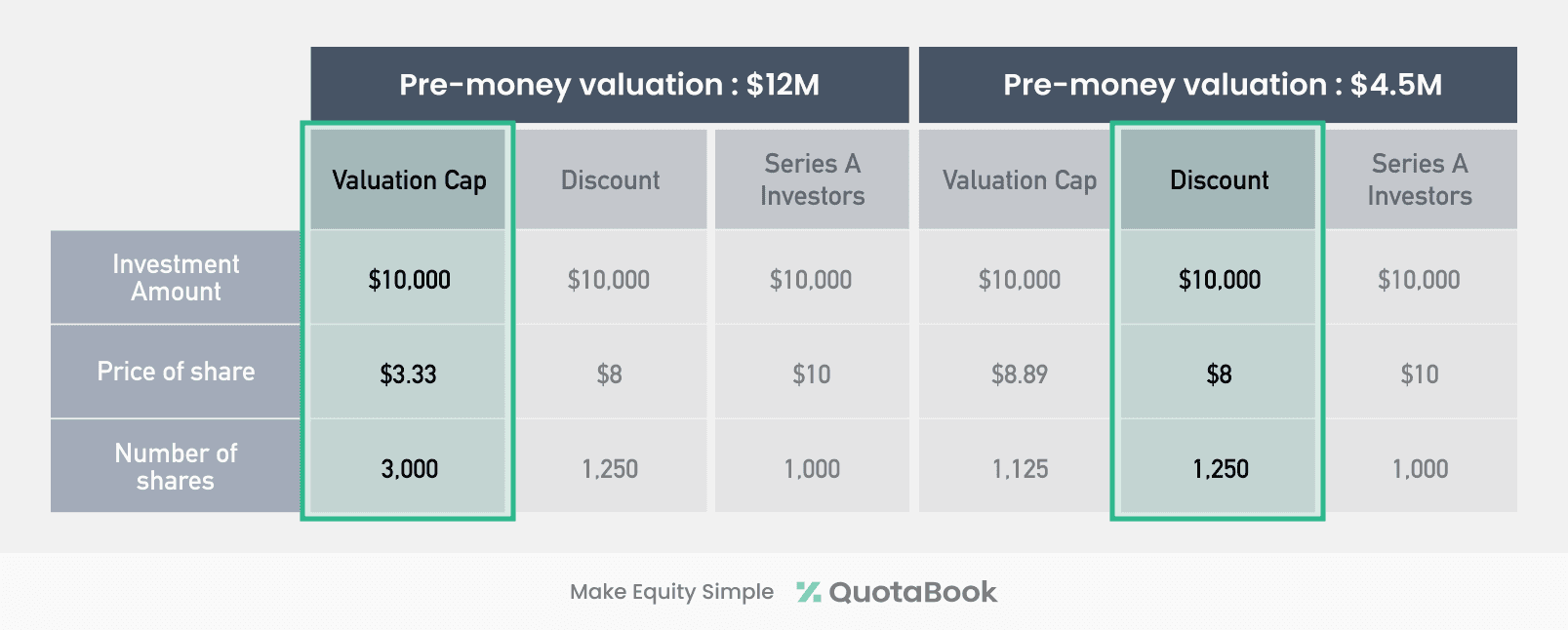Convertible Note
Convertible Note
Convertible Note
What comes into your mind when you think of raising a new round of funding? While equity financing and debt financing are the two main categories, a hybrid form of the two is frequently used in reality. Convertible note is one of them, being a popular means of fundraising for early-stage startups.
🙋What is a convertible note?
A convertible note is a form of short-term debt instrument that converts to equity upon a predetermined conversion event. Investors offer founders convertible notes and at some later point (typically future financing round), those notes will convert to equity instead of being paid back in the form of principal plus interest. It seems pretty much like a convertible bond, but the biggest difference between the two is that a convertible bond has a fixed conversion price, while a convertible note does not. The conversion price of a convertible note is determined by the contract terms and the startup’s performance.
🙋Why are convertible notes used?
The characteristic of postponing valuation till the next funding round is what makes convertible notes an attractive choice for a seed round. Early-stage startups usually don’t have enough data for valuation. They also lack time to wait for the time-consuming valuation process when they have to focus on developing the product. Investors also prefer to accept the reasonable terms to invest quicker, and eventually benefit from the fruits quicker. So basically convertible notes are a win-win solution to meet the needs of both parties.
📝Terms of convertible notes
Discount Rate
Noteholders get a discount on the valuation at the priced equity round when they convert. They get to buy shares at a lower price than new investors in the subsequent financing round, which is compensation for the additional risk of investing earlier.
Valuation Cap
If the startup turns out to be a great success and its valuation goes way higher than expected, early investors may suffer a loss of getting a smaller percentage of shares. To protect noteholders from such possible dilution, the valuation cap is set in advance. This is the maximum valuation at which a convertible note will convert.
Interest Rate
Since a convertible note is in the form of lending money to a startup, it has accrued interest according to the interest rate, just as a normal debt. However, instead of cash payback, this interest typically accrues as additional principal, increasing the number of shares issued upon conversion.
Maturity Date
This denotes the date on which the note is due, at which time the company needs to either raise qualified financing or repay the note.
🙋How does convertible note work?
Let’s walk through an example with the terms explained above. Imagine a startup that has just raised its seed round via convertible notes. These notes come with a valuation cap of $4M, a 20% discount, and a maturity date of 2 years from now (interest rate ignored for simplicity). One year in, the startup manages to raise a Series A round at a $10 price per share. This conversion event occurred before the maturity date of 2 years, so the notes are ready to be converted to equity in a more favorable way between valuation cap and discount. Below is the calculation of the shares the investor who invested $10,000 with convertible notes in a seed round will get in each scenario.

Scenario 1: $12M Pre-money valuation
In order to calculate the valuation cap adjusted price per share, you would divide the valuation cap by the pre-money valuation of the subsequent round and apply that to the Series A price per share. In this example that works out to $3.33 per Series A share for convertible noteholders. Dividing the investment amount ($10,000) by that share price ($3.33) would grant the seed investor approximately 3,000 shares. Meanwhile applying the 20% discount rate would yield 1,250 shares with per-share price of $8. So, in this case, the investor would choose the valuation cap method. Note how much more shares they get compared to new investors with the same investment amount.
Scenario 2: $4.5M Pre-money valuation
If the startup’s performance wasn’t satisfactory as expected, a discount could be a better option for conversion. $4M valuation cap and $4.5M pre-money valuation come up with $8.89 per Series A share. That’s unfavorable for investors compared to the discount-applied price of $8. So, in this depressing scenario, investors would get 1250 shares at a discount price.
🙋How can I manage convertible notes better?
Even the simplified example above may have brought you a headache. Managing convertible notes is a tough task, but QuotaBook can help you. Issue convertibles conveniently by setting the terms, and the system will do the calculations for you. Let’s schedule a demo to discuss your needs and show you how we solve them.
References
https://www.seedinvest.com/blog/angel-investing/convertible-notes
https://learn.angellist.com/articles/convertible-note
※ Legal disclaimer
Make Equity Complete — QuotaBook is a global equity management platform with a mission to create an ecosystem for private companies and their investors and employees. Leaving spreadsheets and manual works behind, every stakeholder can connect online and sync crucial data on equity such as cap table or employee stock options. It is the leading platform used by top startups and VCs in Asia, backed by Y Combinator.
This piece is written for information purposes only and is not intended as financial or legal advice. QuotaBook does not assume any reliability for dependence on the information provided above.
